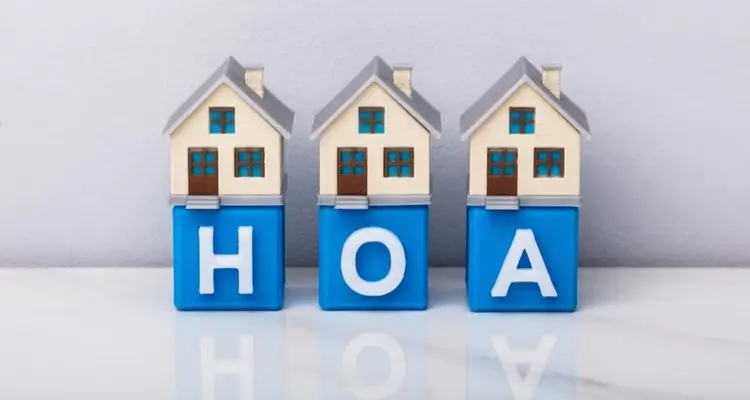
Buying a home is expensive. While you can skip a meal here and there to be able to afford a new pair of shoes you’ve had your eye on, saving for a house generally takes more long term discipline.
When buying a house, there are many costs involved, from the down payment to closing costs. This article details the tips on how to save for a house and the costs of getting a mortgage you should be aware of.
Rate Search: Check Today’s Mortgage Rates
14 Tips to Save Money for a House
1. Create a Budget
It’s easy to overspend when you’re not keeping track of what you buy. A budget is one of the easier ways to save money because it helps you understand where your money is going and helps you stick to your savings goal.
Calculate everything you need to live a comfortable life, have the bills paid, and stick to the budget. This will help ensure you do not continue to overspend.
How much house can you afford calculator
2. Automatic your Savings
You can automatically have money deposited into your savings account. Either from your bank or through your employer’s direct deposit. This is a great way to save money without even having to think about it.
3. Downsize
Moving from a larger, more expensive rental into a smaller, cheaper rental can save you hundreds of dollars each month. That money can go towards saving for your down payment on a house.
4. Track your spending
It can be super easy to plunk down $5 a day for a coffee and then not know where all your money goes at the end of the month.
Just the simple act of writing down each purchase can give you a much better picture of where your money is going so you can make better choices about where to make cuts.
You might literally be shocked at how much money you can save just by making your own coffee and taking your lunch to work.
5. Look for (or create) free entertainment
From “Netflix and chilling” to cable TV to movies and video games, concerts, sporting events, and festivals, Americans spend a massive amount of money on entertainment.
Instead of spending money to go out, invite some friends over for a game night, go out and lay on a blanket and look at the stars or create a scavenger hunt for your friends and family.
Not only will you save some money, but you might find your relationships improving as well.
6. Pick up a side gig
Most of us have a passion or hobby of some kind. These days, there are a million ways to turn your passion or hobby into a paying gig.
From dog walking to tutoring to designing logos to driving people around sightseeing, the internet abounds with ways to pick up some spare cash doing something that interests you.
Unlike getting a part-time job, which might obligate you to spend an additional 20 hours or more per week working, side gigs can generally be done at a convenient time for you and for however many or few hours per week you wish to spend doing them.
7. Make small deposits with debit cards
These days, most banks offer a plan where you can have debit card purchases rounded up to the next whole dollar and have the remainder placed into a savings account.
Not only does this help you save money a little at a time in a way you most likely won’t even notice, but it can make it easier to track your spending as well.
Just be sure and check for any fees because you don’t want to pay more in fees than you are actually saving.
8. Pay Down Your Credit Card Balances
While it may seem counter-intuitive to pay more towards your credit cards than your savings, it will actually help you in the long run. By paying down your card balances, you will save yourself from paying additional interest.
Not only will lower credit card balances look better when it comes to getting a mortgage. Lower card balances equal a higher credit score, making it easier for you to qualify for a mortgage.
9. Refinance your Debt
If you have any loans, such as an auto loan or personal loan, you can save money by refinancing them at a lower rate.
Not only will refinancing lower your rate, but it will also help you pay the balances off quicker. Again this will help your mortgage application look much better when it comes time to get a mortgage.
Shop and Compare Mortgage Offers
10. Get a Roommate
If you have a spare bedroom where you’re staying now, you can rent it out for good money. You can charge hundreds of dollars per month to someone needing a place to stay. Having a roommate isn’t ideal, but that is free money that will help accelerate your savings.
11. Do a Balance Transfer
If you have credit card debt, it can be challenging to get out of debt while paying interest. There are plenty of credit cards that offer balance transfers with a 0% interest rate for 12-18 months.
By transferring your balance to a 0% rate card, you can pay off your balance much faster and save yourself some money in the process.
12. Move Savings to an Interest Bearing Account
If you have money that is just sitting in a savings account, you’re losing money. Some savings accounts do give you interest, but it is very minimal.
Speak to a financial advisor to see if your money will work better for you in a mutual fund or another interest-bearing type of account.
13. Lower Your Bills
You can save quite a bit of money by calling your service providers to find the best plan for you. This could be your cable or internet provider, cell phone, auto, or health insurance.
You may be paying more money than you could be. A short phone call to your service providers can go a long way in lowering your monthly bills.
14. Use cash
Studies have shown a psychological disconnect that happens when we swipe a card versus using cash. When you spend cash, you literally see your money being given to another person. It makes you less likely to spend more money than if you use a credit card.
When you swipe a card, you are more likely to spend more because the action of swiping a card is completely disconnected from the mental image of spending money.
Rate Search: Check Current Mortgage Rates
How Much Money Do You Need to Buy a House
To get a mortgage, you need to save for the down payment, closing costs, and other upfront costs associated with buying a house.
The Down Payment
The downpayment on a mortgage is a percentage of the purchase price that you will pay up-front. The down payment amount varies by loan type.
There are two types of home loans that provide 100% financing. VA loans and USDA loans. Every other type of home loan requires at least a 3% down payment. You can qualify for an FHA loan with just a 580 credit score and a 3.5% down payment.
Down Payment Requirement by Loan Type | |
FHA Loan | 3.5% with 580 score (10% down with 500-579 score) |
USDA Loan | No down payment |
VA Loan | No down payment |
203k Loan | 3.5% |
Conventional Loan | 5% - 20% |
Conventional 97 Loan | 3% |
HomeReady Loan | 3% |
Home Possible Loan | 3% |
Down Payment Assistance
There are many programs and grants for first-time homebuyers that offer down payment and closing cost assistance. You can search for these programs on your local city or county government website, or go to the HUD website.
Home Appraisal
A home appraisal estimates a property’s market value used by the mortgage lender to determine loan terms. The appraisal is done before closing and is paid for by you, the buyer. The average appraisal cost is between $400-$700.
Home Inspection
A home inspection is highly recommended before closing. During the inspection, there could be major issues uncovered that you could ask the seller to repair. The average cost of a home inspection is $300-$500 and varies based on the home’s square footage.
Closing Costs
Closing costs are various fees charged by the lender for completing the loan, such as loan origination fees, credit report, title, survey, loan application, etc. Average mortgage closing costs are somewhere around 2% to 5% of the loan amount.
Know what you can Afford
There are other costs involved when you’re a homeowner besides your monthly mortgage payment. There are homeowners’ insurance, mortgage insurance, HOA fees, and property taxes.
You need to make sure you take all of these costs into account when deciding to get a home loan. What you can afford will depend on your debt-to-income ratio, which is the amount of your debt obligations compared to your monthly income.
How much house can you afford calculator
The Bottom Line
There are a million ways to save money for a new home.
The important thing is that you save for the down payment and other associated upfront costs of a mortgage and have enough left in savings so you don’t go broke.
Cutting back on unnecessary expenses like eating out, cable TV, going to the movies or sports games are easy ways to save money. Once you have saved up enough money, it’s time to speak to a qualified loan officer about your mortgage options.



